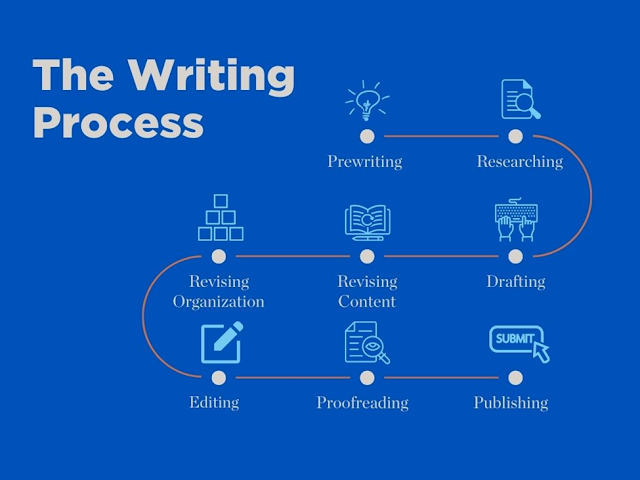Citing articles and research papers when writing essays serves several important purposes.
 |
| WHAT ARE THE BENEFITS OF CITING ARTICLES AND RESEARCH PAPERS WHEN WRITING ESSAYS? |
Yes, that's correct. By citing sources, you are showing that your ideas are not just your own personal opinions, but are instead supported by evidence and research in the field. This helps to add credibility to your argument and establishes you as a knowledgeable and trustworthy writer.
Citing sources also helps to avoid plagiarism, which is the act of using the work of others without proper attribution. Plagiarism is not only unethical, but it can also have serious consequences in academic settings, such as failing grades or even expulsion. By citing your sources, you are clearly indicating which ideas are your own and which are borrowed from others, which helps to avoid any accidental instances of plagiarism.
Citing sources also helps to provide context for your argument. By including the work of other researchers, you can demonstrate how your ideas fit into the larger conversation and debate in the field. This can be especially important when you are writing about a topic that has been widely researched and studied.
Finally, citing sources helps to enrich your writing and make it more engaging for your readers. By including the work of other researchers and scholars, you can add depth and complexity to your argument and provide your readers with a more well-rounded understanding of the topic.
Overall, citing sources is an important aspect of academic and scholarly writing, as it helps to establish credibility, avoid plagiarism, provide context, and enrich your writing. By following proper citation guidelines and referencing the work of others, you can create a strong, well-supported argument that engages and informs your readers.
Yes, that's correct. Plagiarism is a serious issue in academic settings, and it is important to avoid it at all costs. By citing your sources, you are clearly indicating which ideas are your own and which are borrowed from others, which helps to avoid any accidental instances of plagiarism.
There are many different ways to cite sources, depending on the citation style that you are using. Some common citation styles include APA, MLA, and Chicago. Each citation style has its own set of rules and guidelines for how to format citations and references, so it is important to make sure that you are following the correct style for your assignment.
In general, when you are citing a source, you will need to include information such as the author's name, the title of the work, the publication date, and the page number (if applicable). Depending on the citation style, you may also need to include additional information such as the publisher, the journal title, or the URL of an online source.
By citing your sources correctly, you can avoid plagiarism and demonstrate to your readers that you are engaging with the work of others in an ethical and responsible manner.
Yes, that's correct. Citing sources helps to provide context for your argument by demonstrating how your ideas fit into the larger conversation and debate in the field. This can be especially important when you are writing about a topic that has been widely researched and studied, as it helps to show how your ideas contribute to the existing body of knowledge on the subject.
By citing the work of other researchers, you can show your readers the various perspectives and viewpoints that have been put forward on the topic, and how your own ideas fit into this larger context. This can help to make your argument more nuanced and well-rounded, and can also help to show how your ideas are connected to the work of others in the field.
In addition to providing context for your argument, citing sources can also help to support your claims and add credibility to your writing. By referencing the work of other researchers and scholars, you are demonstrating that your ideas are supported by established knowledge in the field. This not only adds weight to your argument, but it also helps to establish your own credibility as a writer.
Overall, citing sources is an important aspect of academic and scholarly writing, as it helps to provide context, support your claims, and establish the credibility and validity of your argument. By following proper citation guidelines and referencing the work of others, you can create a strong, well-supported argument that engages and informs your readers.
Yes, that's correct. Citing sources can help to enrich your writing and make it more engaging for your readers by adding depth and complexity to your argument. By including the work of other researchers and scholars, you can provide your readers with a more well-rounded understanding of the topic, as you are showing them the various perspectives and viewpoints that have been put forward on the subject.
In addition to adding depth and complexity to your argument, citing sources can also help to make your writing more engaging by providing your readers with additional resources and references that they can use to learn more about the topic. By including citations and references, you are giving your readers the opportunity to explore the topic more deeply on their own, which can help to make your writing more engaging and interactive.
Overall, citing sources is an important aspect of academic and scholarly writing, as it helps to enrich your writing, add depth and complexity to your argument, and make your writing more engaging for your readers. By following proper citation guidelines and referencing the work of others, you can create a strong, well-supported argument that engages and informs your readers.
Yes, that's a very good summary of the benefits of citing sources when writing essays. Citing articles and research papers is an important way to establish credibility, avoid plagiarism, provide context, and enrich your writing. By referencing the work of other researchers and scholars, you are demonstrating that your ideas are supported by established knowledge in the field, which helps to add credibility to your argument and establish your own credibility as a writer.
Citing sources also helps to avoid plagiarism, which is the act of using the work of others without proper attribution. Plagiarism is not only unethical, but it can also have serious consequences in academic settings, such as failing grades or even expulsion. By citing your sources, you are clearly indicating which ideas are your own and which are borrowed from others, which helps to avoid any accidental instances of plagiarism.
Citing sources also helps to provide context for your argument by demonstrating how your ideas fit into the larger conversation and debate in the field. This can be especially important when you are writing about a topic that has been widely researched and studied, as it helps to show how your ideas contribute to the existing body of knowledge on the subject.
Finally, citing sources helps to enrich your writing and make it more engaging for your readers. By including the work of other researchers and scholars, you can add depth and complexity to your argument and provide your readers with a more well-rounded understanding of the topic.
Overall, citing sources is an important aspect of academic and scholarly writing, and by following proper citation guidelines and referencing the work of others, you can create a strong, well-supported argument that engages and informs your readers.

















